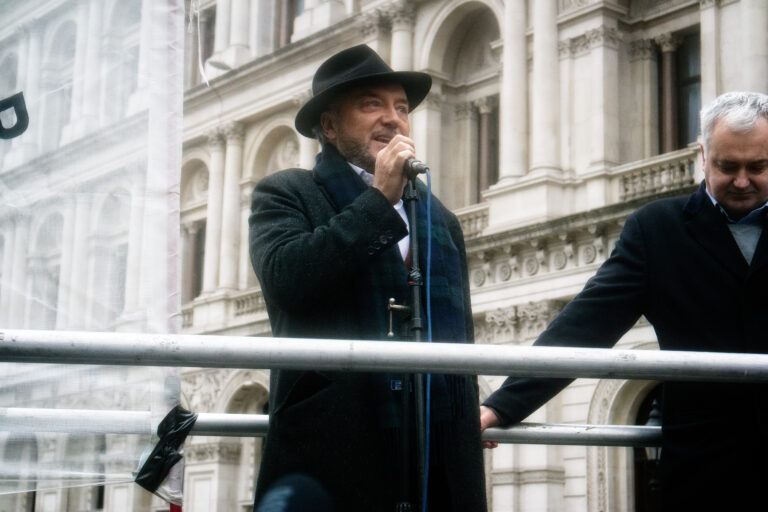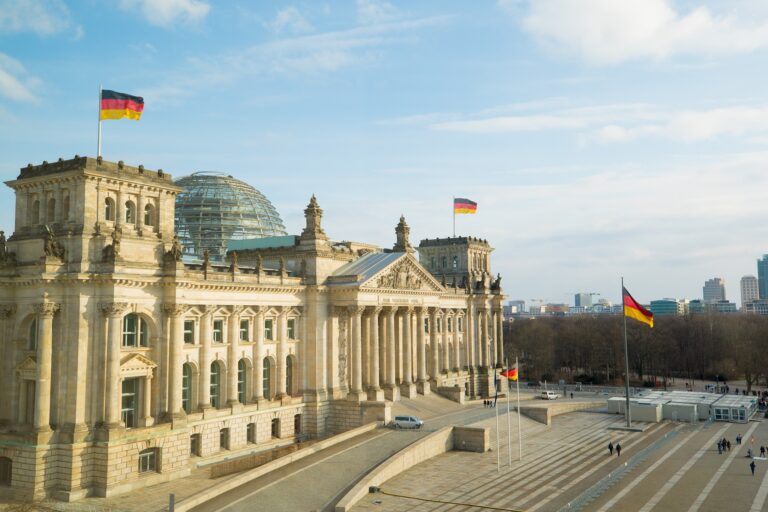
Dr Damon Perry
Senior Research Fellow (2021-2023)
The campaign – which rallies against “20 years of illegal wars, carpet bombings, drone assassinations, arbitrary detention, torture and mass displacement in the Muslim world” – organises film screenings, exhibitions, webinars, in-person events, and podcasts.
On October 2, 2021, the campaign will hold an international conference promising “A series of thought-provoking discussions between cutting-edge minds who have lived through the failure of the War on Terror”. Key themes include Islamophobia and the suppression of Muslim populations.
Campaign organisations
The campaign was launched by CAGE, which describes itself as “an independent grassroots organisation striving for a world free of injustice and oppression”. Much of CAGE’s energy goes into undermining the legitimacy of the British government’s counter-terrorism and counter-extremism work, which it sees as inherently “Islamophobic and authoritarian”. It shares a perspective held by numerous mainstream Islamist groups in Britain, that the government’s efforts to address the ideological dimension of Islamist terrorism is an attack upon Islam itself.
The other two key British partners of the campaign are Muslim Engagement and Development (MEND), whose promotion of a “victimhood mentality” among British Muslims has been documented by Policy Exchange; and the pro-Iranian Islamic Human Rights Commission (IHRC), which organises an annual Al-Quds Day in London featuring speakers calling for the elimination of the state of Israel.
Also listed as partners are Islamist organizations from continental Europe. These include two French NGOs dissolved in the wake of the beheading of the French schoolteacher Samuel Paty, namely BarakaCity, which was described by the country’s interior minister as an “enemy of the state”, and Collectif Contre l’Islamophobie en Europe (CCIE), a French Islamophobia watchdog reportedly close to the Muslim Brotherhoodthat has relocated to Belgium.
Another partner is Center for Islam and Global Affairs (CIGA), based in Istanbul, Turkey. In 2003, CIGA’a director, Sami Al-Arian, was described by U.S. federal prosecutors as a leader of Palestinian Islamic Jihad (PIJ), complicit in the murder of civilians. In 2006, he pleaded guilty to conspiring to make or receive contributions of funds, goods, or services to or for the benefit of PIJ. CIGA has collaborated with British and other Islamist organisations, including CAGE, on numerous conferences on the War on Terror, Palestine, and Islamophobia.
A recent academic conference hosted by CIGA in Turkey in June 2021 was called “Challenging Apartheid in Palestine”. One of the speakers at this event was Salman Sayyid, an academic from Leeds University and associate of IHRC, who’s thinking informed the definition of Islamophobia put forward by the All Party Parliamentary Group on British Muslims in November 2018.
Islamism and social justice
In many ways, the International Witness Campaign is a continuation and re-packaging of the work of CAGE, albeit connected to a wider international network. One aspect of the campaign that is new, however, is the inclusion of the language and ideas of social justice. Borrowing heavily from the lexicon of critical race theory, one of the campaign’s “demands” is the “complete dismantlement of the infrastructure which made those crimes [state sponsored violence] possible, including laws, policies and practices”.
The campaign’s inclusion of social justice themes was also apparent in several events it has recently held. On September 22, 2021, CAGE organised a webinar called “Social Justice in National Security: Twenty Years Post-9/11”. Alongside its outreach director, Moazaam Begg, guests included Saleema Snow, a Professor of Law at the University of the District of Columbia who teaches Critical Race Theory; and Sahar Aziz, the Chancellor’s Social Justice Scholar at Rutgers University Law School. And on August 31, 2021, CAGE’s research director, Asim Qureshi, co-hosted an event called “Citizenship, Lived Experiences and the Impact of the War on Terror”.
Whether this is a cynical capitalisation on the success of the post-George Floyd social justice movement driven by Black Lives Matter, or a genuine development of mainstream Islamist thinking, CAGE is actively positioning itself at the vanguard of an international activist network driven by grievance identity politics.
CAGE’s approach has arguably involved a distancing of former tactics. Whereas in 2006, Qureshi was addressing a London rally organised by Hizb ut-Tahrir, calling for Muslims “to support the jihad of our brothers and sisters in these countries when they are facing the oppression of the West”, today he is aligning with American social justice academics, taking CAGE onto a global stage, and speaking a markedly different language of activism.
It seems fair to say that this new Islamist-Leftist international movement, comprised of CAGE, its Islamist partners, and its social justice allies, presents a growing challenge to British policymakers and their partners abroad. In a recent essay for Policy Exchange on Islamism and the Left, Sir John Jenkins described some of the features of this challenge:
Because it contains no theory of change, simply a range of essentialist positions, granting different privileges to different groups on the basis of an unexaminable taxonomy of victimhood, it is resistant to practical remedies. And most important of all, it corrodes social cohesion, free communication and mutual trust, the underpinnings of any political community. Any government faced with such a challenge to the fundamental principles of the social and political order it represents would need to make a stand.
The partners of the International Witness Campaign invite such a stand. Collectively, they appear to share the goal of stoking a culture of grievance and undermining the legitimacy of Western liberal democracies – principally the U.S. and Britain – particularly regarding their authority to champion and protect normative values. This was evident in CAGE’s push to scrap “fundamental British values”, the yardstick by which the government gauges “extremism” in its tackling of radicalisation and terrorism.


